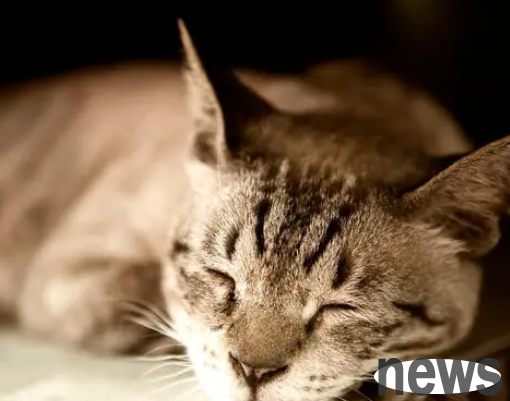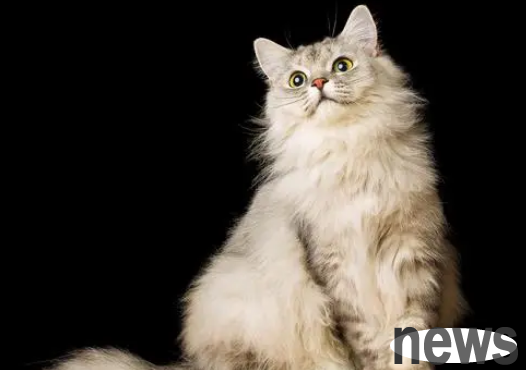There is an old Chinese saying: Curiosity kills cats. Cats are naturally curious and are interested in many foods they have never eaten.
Especially when pet cats watch us humans eat whatever they taste, they will also want to try it.
Little do people know that many foods that humans are used to are highly toxic to cats.
Today, let Anan take you to find out!
(If there are any errors, everyone is welcome to send me a message to the background to correct me. I will definitely change it after I verify it!)

01 Cats cannot eat at all.
Fruits:
Avocado: causes poisoning, leading to diarrhea, vomiting, and in severe cases, dyspnea and suffocation death.
Grape: causes poisoning, vomiting and diarrhea, and severe renal failure may occur.
Loquat: causes poisoning, leading to diarrhea and abdominal pain.
Onion: Destroying red blood cells leads to anemia, which can also cause a lot of urination and cause kidney damage, and severe renal failure.
Pear: In mild cases, dizziness and vomiting, severe cases of difficulty breathing, convulsions throughout the body, and until respiratory paralysis and cardiac arrest.
Carambola: Causes acute renal failure.
Balcony: stimulates the stomach and intestines.
Lemon: causes vomiting and diarrhea, leading to gastroenteritis.
Sugarcane: Normal cats can’t chew sugarcane and can’t drink sugarcane juice. Don’t feed them.
Orange, orange, orange, grapefruit: Generally speaking, cats hate the smell of orange, grapefruit fruits. Some families will use orange peels to drive their cats into bed, so they will vomit after eating them.

Meat:
Raw eggs: cause diarrhea and vomiting, which may contain parasites, causing cat infection.
(Reply in the comment area: Sterile eggs can be eaten raw, only egg yolks can be eaten. Eating egg whites will cause indigestion and diarrhea.)
Chicken egg whites: indigestion.
(Another reply in the comment area: The activity of cooked egg whites will be reduced according to the cooking method, so it is okay to eat a small amount, and you can ignore it if you are worried.)
Octopus and squids: It may cause indigestion, vomiting, diarrhea, and some cats may also be allergic.
Vegetatives: (Cats have not evolved into omnivorous animals yet. I am a pure meat eater, so we dare not ask why there are always people who want to feed me vegetarians)
Houttuynia cordata: It can cause vomiting.
Toon: causes poisoning.
Flower mushrooms, tea, tree mushrooms and other mushrooms: There is no demand, and there is a burden to digest.
(It is okay to take oyster mushrooms and shiitake mushrooms accidentally, but cats really don’t need to eat mushrooms. Put your curiosity away.)
Garlic, yellow, garlic, leeks, etc.: It harms the same garlic, leeks.
Beverage category: (Suggestion is: cold white-opening is good for cats or people!)
Milk and milk products: Adult cats have lactose intolerance, which can lead to vomiting and diarrhea. (There are many pet milks with 0 lactose on the market that actually contain very little milk.)
Coffee/Cocoa: highly toxic, causing severe vomiting and diarrhea, and even causing heart disease.
Wine: vomiting, mental abnormalities, severe shock, renal failure. (Don't feed it randomly!)
Soda water: irritates the stomach and intestines, causes vomiting, and dies of dehydration in severe cases.
Juice: Stimulates the stomach and intestines and leads to chronic vomiting.
Milk tea: Excessive sugar content affects gastrointestinal health and leads to indigestion
Tea: causes vomiting, diarrhea
Dessert category:
Chocolate: causes poisoning, causing convulsions, and death in severe cases in shock.
Ice cream ice cream, etc.: Cats have lactose intolerance and gastrointestinal sensitivity, which causes vomiting and diarrhea under the dual stimulation of milk as raw materials and coldness.
Many cats love desserts, snacks, and bread, and like the high calories of these foods. In fact, cats cannot taste sweetness, and eating sweets will not make them happy to secrete dopamine like humans.
Nuts: All nuts are dangerous for cats.
02 Cats can satisfy their cravings, but eat less staple foods:
Rice steamed buns: high starch content, oats and other mixed grains: If the cat likes, you can eat a few bites of potatoes, yam, pumpkin, corn, sweet potato, taro, purple potato and other coarse grain staple foods, you can eat them. But the cat itself does not need it, so just take a few bites to satisfy your cravings.
Meat:
Shrimp: It has no nutritional value for cats. It is OK to eat it occasionally to improve the taste, but you should also feed it carefully and be careful about allergies.
Animal viscera: Excessive dose is easy to get poisoned. Eat a small amount once or twice a week
Boiled egg yolks: Do not exceed one at a time.
Shellfish: May cause allergies and cause kidney burden.
(Shellfish are eaten with caution, and it is not within the prey range of cats, which may cause allergies and must be eaten cooked. A moderate amount of green mouth is good for cats. Eat in a small amount for the first time, and then observe whether there is any allergies.)
Vegetarian categories:
Cabbage, cauliflower, Chinese cabbage, cabbage, winter melon, oil-beef vegetables, etc. Cats can eat less, but be careful not to add salt.
After all, cats are not vegetarians, so put them in the Eat Less column. Feeding cats every day still doesn’t fit its kingly genes.
Fruits:
Apples, bananas, strawberries, watermelons, cherries, durians, mulberries, figs
03 Things cats can eat more.
Cats are carnivorous animals.
Beef, chicken, mutton, pork, beef tendon, beef bones, fish, quail, and pigeons can all be cooked and fed to the cat.
Tofu and soy milk: supplement plant protein.